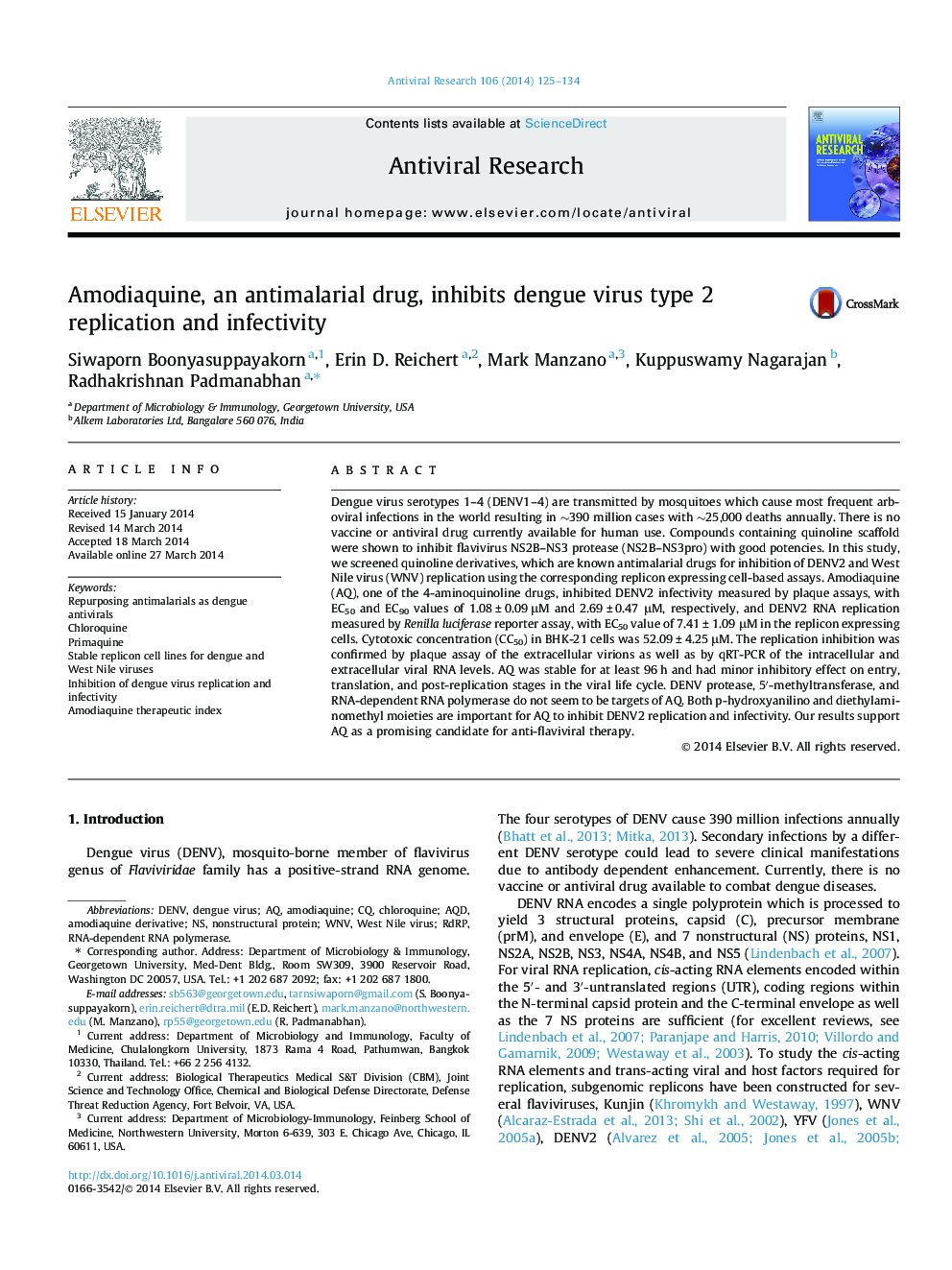| کد مقاله | کد نشریه | سال انتشار | مقاله انگلیسی | نسخه تمام متن |
|---|---|---|---|---|
| 5822169 | 1557837 | 2014 | 10 صفحه PDF | دانلود رایگان |

- Amodiaquine inhibited dengue virus infectivity with EC50 and EC90 values of 1.08 ± 0.09 and 2.69 ± 0.47 μM, respectively.
- Amodiaquine inhibited replication of dengue virus reporter replicon with EC50 value of 7.41 ± 1.09 μM.
- Both p-hydroxyanilino and diethylaminomethyl moieties of amodiaquine are important for its antiviral activity.
- Repurposing of the antimalarial compound, amodiaquine, is a promising option for treatment of dengue virus infections.
Dengue virus serotypes 1-4 (DENV1-4) are transmitted by mosquitoes which cause most frequent arboviral infections in the world resulting in â¼390 million cases with â¼25,000 deaths annually. There is no vaccine or antiviral drug currently available for human use. Compounds containing quinoline scaffold were shown to inhibit flavivirus NS2B-NS3 protease (NS2B-NS3pro) with good potencies. In this study, we screened quinoline derivatives, which are known antimalarial drugs for inhibition of DENV2 and West Nile virus (WNV) replication using the corresponding replicon expressing cell-based assays. Amodiaquine (AQ), one of the 4-aminoquinoline drugs, inhibited DENV2 infectivity measured by plaque assays, with EC50 and EC90 values of 1.08 ± 0.09 μM and 2.69 ± 0.47 μM, respectively, and DENV2 RNA replication measured by Renilla luciferase reporter assay, with EC50 value of 7.41 ± 1.09 μM in the replicon expressing cells. Cytotoxic concentration (CC50) in BHK-21 cells was 52.09 ± 4.25 μM. The replication inhibition was confirmed by plaque assay of the extracellular virions as well as by qRT-PCR of the intracellular and extracellular viral RNA levels. AQ was stable for at least 96 h and had minor inhibitory effect on entry, translation, and post-replication stages in the viral life cycle. DENV protease, 5â²-methyltransferase, and RNA-dependent RNA polymerase do not seem to be targets of AQ. Both p-hydroxyanilino and diethylaminomethyl moieties are important for AQ to inhibit DENV2 replication and infectivity. Our results support AQ as a promising candidate for anti-flaviviral therapy.
Journal: Antiviral Research - Volume 106, June 2014, Pages 125-134